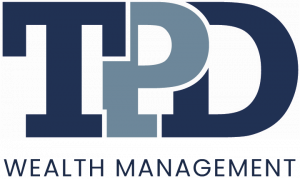
Preparing to buy your first home can be exciting, but it might also be a milestone you’re feeling apprehensive about. Not only will you be making a large financial commitment, but the process of buying a property can seem complex and filled with jargon.
Indeed, according to a survey from Halifax, more than half of under-35s admit they don’t feel confident in the home-buying process, and six in ten said they feel “daunted” at the prospect of purchasing property.
Many first-time buyers will use a mortgage to purchase a home and take their first step on the property ladder. Securing the right deal for you is important – it could mean you’re able to borrow more, pay a lower interest rate, or speed up the process. So, read on to find out what you need to know about mortgages as a first-time buyer.
Traditionally, you’ve needed a 10% deposit
As a first-time buyer, one of the first hurdles you’ll often need to overcome is saving up a deposit.
Traditionally, you’ve needed to put down a deposit that is 10% of the value of the property you want to buy. However, some mortgages are available that require just a 5% or even 0% deposit. So, if you’re struggling to save 10%, there could be other options that might be right for you.
Your income will affect how much you can borrow
When assessing how much you can borrow, a lender will look at several different factors, including your income.
Typically, you can borrow up to five times your household income. However, some lenders may allow you to borrow more, which could give you greater choice when searching for a home.
If you’re self-employed, a lender will often assess your accounts from the last two or three years to calculate the amount you can borrow.
Lenders will carry out affordability checks to gauge how likely you are to default on your repayments, including if interest rates increase. It may be worthwhile doing your own calculations for peace of mind too – do you feel confident you could keep up with repayments?
When you’re ready to start looking at properties, securing a mortgage in principle could be useful. This would give you an idea of how much you’ll be able to borrow. A mortgage in principle wouldn’t affect your credit rating, but keep in mind it’s not a guarantee.
Lenders will also review your credit report
It’s not just your income that will play a role in how much you can borrow or whether your mortgage application will be accepted. Lenders will also look at your credit report to review your payment history and other borrowing you may have.
Checking your credit report before making a mortgage application might enable you to identify red flags first. In some cases, you may be able to remove these potential issues before you apply for a mortgage, such as reducing debt.
A poor credit report and even missed payments in the past don’t automatically mean you can’t take out a mortgage. However, you might benefit from approaching a specialist lender. Keep in mind that the greater the risk you pose to a lender, the higher the interest rate you’re likely to be offered.
There are several different types of mortgages to choose from
Before you start searching for a mortgage, it is a good idea to understand what type of mortgage may be right for you as there are several different options.
First, you’ll need to consider if you want a repayment mortgage or an interest-only mortgage.
Most people using a mortgage to buy a home choose a repayment mortgage. This means, that each month, you’d pay the accrued interest and a portion of the amount you borrowed. At the end of the mortgage term, you’d own your home outright.
As the name suggests, with an interest-only mortgage, you’d only pay the interest accrued each month. As a result, your monthly repayments would be lower. However, at the end of the mortgage term, you’d still owe the initial amount borrowed. So, you might need to think about what you’d do long term. For instance, you might take out another mortgage or use other assets, like savings, to pay off or reduce the debt.
Next, it’s time to think about the interest that’s added to your mortgage. There are three main options to consider:
- Fixed-rate: With this option, the interest you pay is fixed for a defined period, such as two or five years. This could be useful when creating a budget, but you wouldn’t benefit if interest rates fell during your mortgage deal.
- Variable-rate: A variable interest rate means your lender could change the rate of interest you pay during the mortgage deal. If interest rates fell, you’d benefit from lower repayments. However, if they increased, your outgoings would also rise.
- Tracker-rate: This is similar to a variable-rate mortgage but would follow the Bank of England’s base interest rate. As a result, the interest you pay could rise and fall unexpectedly.
If you’re not sure which kind of mortgage is right for you, we could help.
You don’t have to find a mortgage alone
Finally, when you’re in a position to start searching for a property, remember, that you don’t need to go through the mortgage application process alone. A mortgage broker could help you assess which lenders may be right for you and offer you support throughout the application process.
Working with a professional means you have someone to answer your questions and provide guidance. Please get in touch if you’d like our help to secure a mortgage to buy your first home.
Please note: This blog is for general information only and does not constitute financial advice, which should be based on your individual circumstances. The information is aimed at retail clients only.
Your home may be repossessed if you do not keep up repayments on a mortgage or other loans secured on it.


